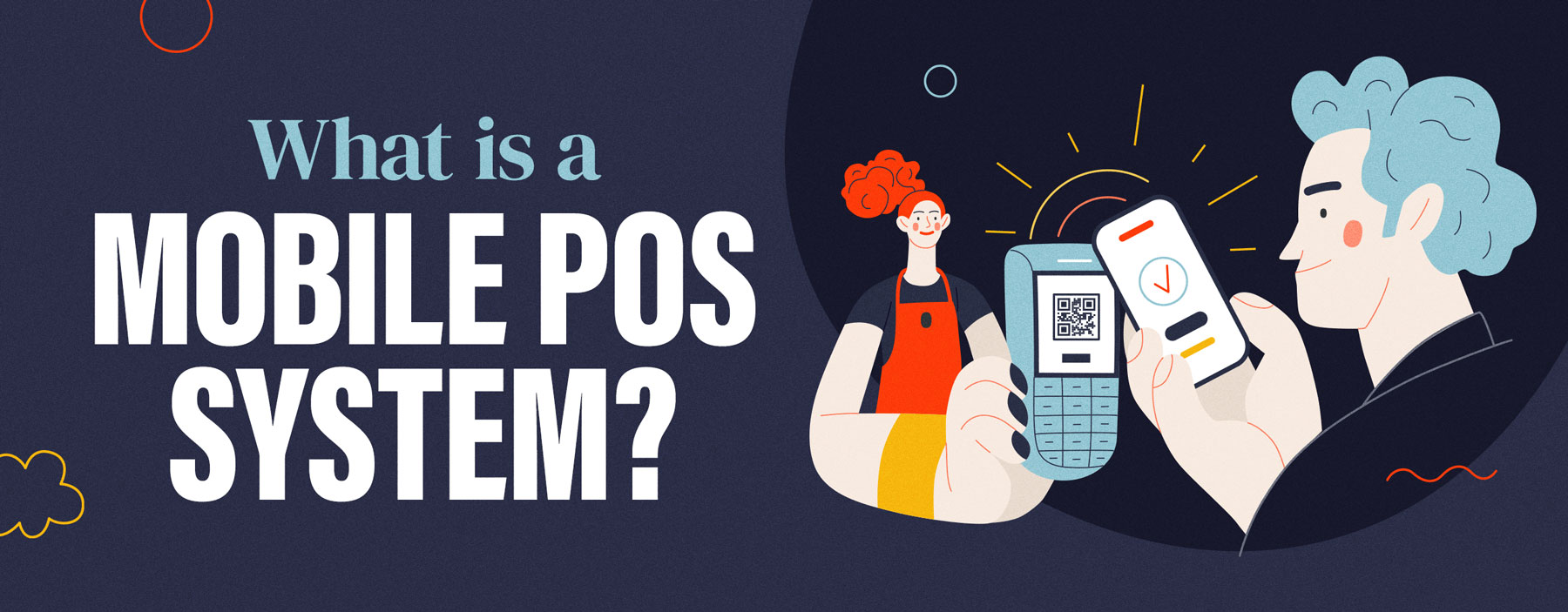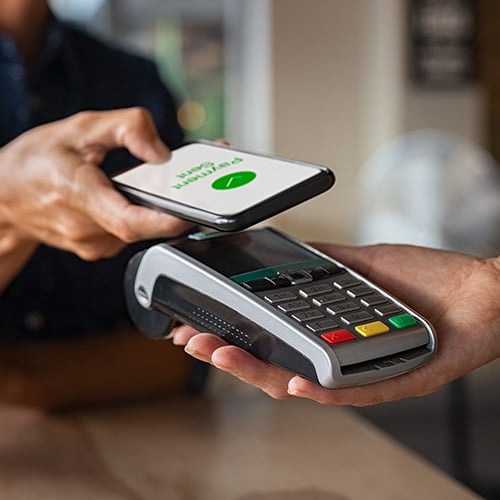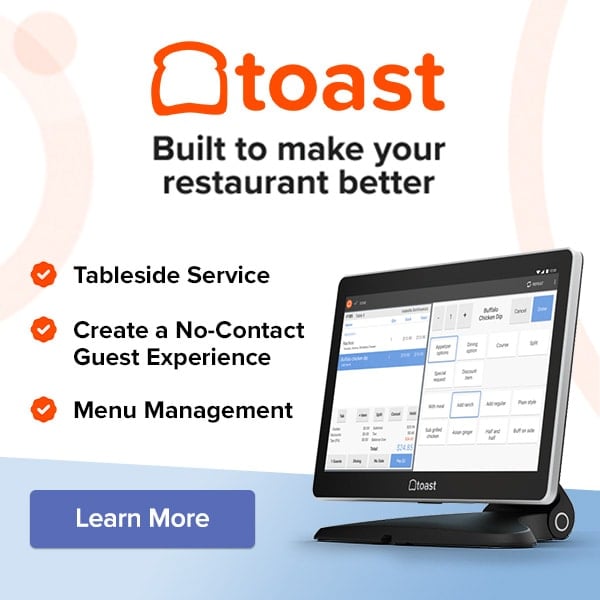
With the increasing demand for mobility and convenience in the commercial sector, mobile POS systems have become a valuable tool for businesses in the retail, hospitality, and food service industries. These systems provide a flexible and efficient way for businesses to process payments, track inventory, and analyze sales data on the go. By leveraging the power of mobile POS technology, businesses can stay competitive, increase efficiency, and drive growth in today's fast-paced commercial landscape.
What Is Mobile POS?

A mobile POS system is a portable device that enables businesses to accept payments and manage sales transactions on the go. These systems are typically comprised of a smartphone or tablet equipped with a card reader and POS software. With their portable and versatile nature, these systems are a game-changer for businesses of all sizes and industries.
Mobile POS systems offer businesses the flexibility to accept payments anywhere, whether it's at a trade show, pop-up event, or even tableside at a restaurant. They provide a convenient and efficient way to process transactions, allowing businesses to streamline operations and improve customer service. One key feature of mobile POS systems is their ability to accept various payment methods, including credit cards, debit cards, and mobile payments like Apple Pay and Google Pay.
What Are Mobile Payments?
Mobile payments are transactions that are digital, and customers don't need to have a physical debit or credit card with them to make a sale. As a result, mobile payments don't require hardware.
Here are some of the most popular mobile payment platforms:
- Apple Pay
- Google Pay
- PayPal
- Venmo
- Cash App
What Types of Establishments Use Mobile POS?
Mobile POS are no longer limited to traditional brick-and-mortar stores and have expanded to various types of establishments across industries. Understanding the diverse applications of mobile POS systems can help businesses make informed decisions on adopting this technology. Below we've listed the types of establishments that commonly use mobile POS systems and how they can aid each type of business in operations:
- Restaurants and Mobile Food Businesses - In the fast-paced environment of restaurants and mobile food businesses, mobile POS systems provide a quick and easy way to take orders, process payments, and manage inventory. With the ability to move equipment around the dining area or serve customers in outdoor settings, these systems enhance operational efficiency and improve customer service.
- Bars and Cafes - Bars and cafes benefit greatly from the mobility and versatility of mobile POS systems, allowing staff to take orders and accept payments directly from customers' tables or seating areas. This streamlined process not only speeds up service but also helps reduce errors in order taking and payment processing.
- Hotels - Whether it's processing room service orders, managing reservations, or handling payments at various points of sale within the hotel, mobile POS systems offer a convenient solution for enhancing guest experiences and operational efficiency.
- Event Venues - Event venues, such as concert halls, sports arenas, and conference centers, often have multiple points of sale scattered throughout the premises. Mobile POS systems enable vendors and staff to accept payments hassle-free at locations like concession stands, merchandise booths, or ticketing counters.
- Delivery Services - Mobile POS systems and mobile payments are great options for delivery drivers as they reduce contact with customers when collecting cash for orders.
Mobile POS Benefits
Integrating mobile POS into your business model provides massive benefits to your operations. Discover the benefits you could reap from utilizing mobile POS below:

- Improved Customer Experience and Efficiency - Mobile POS systems allow businesses to provide faster and more personalized service to customers. By processing transactions on the spot, staff can reduce wait times and enhance overall satisfaction.
- Enhanced Flexibility - Mobile POS systems provide flexibility to set up temporary checkout stations during peak hours or special events. This adaptability ensures that businesses can efficiently handle high-volume traffic without additional traditional POS terminals.
- Real-Time Data Insights - Mobile POS systems provide real-time access to sales data, inventory levels, and customer information. This allows businesses to make informed decisions on the go, optimize inventory management, and personalize customer interactions.
- Cost Savings - Implementing a mobile POS system can lead to cost savings by reducing the need for expensive traditional POS hardware and minimizing the risk of human errors in manual data entry. Additionally, the streamlined processes enabled by mobile POS systems can increase productivity and profitability.
- Integration Capabilities - Many mobile POS systems offer integration with other business tools such as accounting software, customer relationship management (CRM) systems, and e-commerce platforms. This seamless integration streamlines operations and provides a cohesive view of business performance across various channels.
- Enhanced Security - Most mobile POS systems come equipped with advanced security features such as encryption, tokenization, and remote data wiping capabilities to protect sensitive customer information and prevent fraudulent activities. This extra security helps keep your restaurant and your customers safe.
- Scalability - Mobile POS systems easily scale with the growth of a business. Whether adding new locations, expanding product offerings, or increasing customer volume, mobile POS systems can adapt to meet evolving business needs without significant investments in additional infrastructure.
Mobile POS Features

These systems provide a range of features that enhance the overall efficiency and customer experience. Understanding the key features of mobile POS systems helps businesses make informed decisions when selecting the right solution for their needs.
- Security - Security is paramount when processing transactions and handling sensitive customer data. Look for a mobile POS system that offers robust security features such as encryption, tokenization, and PCI compliance to ensure that your customers' information is protected.
- Easy-to-Use Interface - A user-friendly interface is essential for training staff quickly and ensuring smooth transactions. Choose a mobile POS system with an intuitive design that minimizes the learning curve for employees and allows for speedy order processing.
- Integrated Software - A mobile POS system that integrates seamlessly with your existing software and hardware infrastructure can help streamline operations and improve overall efficiency. Look for a system that offers compatibility with popular restaurant accounting, inventory management, and CRM software.
- Cross-Platform Functionality - Opt for a mobile POS system compatible with multiple operating systems and devices to ensure flexibility and scalability. This will allow you to use the system on various devices such as smartphones, tablets, and laptops, making it easier to adapt to changing business needs.
- Menu and Inventory Tracking - Effective menu and inventory tracking features are great for managing stock levels, tracking sales trends, and optimizing menu offerings. Choose a mobile POS system that offers robust inventory management features, including real-time tracking, low stock alerts, and the ability to create and update menus easily.
- Offline Functionality - A mobile POS system that can operate offline is essential for businesses in areas with unreliable internet connectivity or during outages. Look for a system that offers offline functionality, allowing you to continue processing transactions and collecting data even when not connected to the internet.
- Ability to Send Invoices - Collecting customer information and sending invoices via email can help improve customer engagement and streamline payment processes. Choose a mobile POS system that enables you to collect customer data, send receipts via email, and generate invoices directly from the system.
Mobile POS vs Traditional POS
One of the key differences between a traditional POS system and a mobile POS system is movement and flexibility. While traditional POS systems are stationary and typically require a physical terminal, mobile POS systems allow you to process transactions on the go using a smartphone or tablet. This mobility can be particularly beneficial for businesses that operate in multiple locations or attend events where a stationary POS system is not feasible.
Traditional POS systems often come with a higher upfront cost due to the need for hardware such as terminals, cash drawers, and receipt printers. On the other hand, mobile POS systems are generally more cost-effective as they utilize existing devices such as smartphones or tablets. Additionally, mobile POS systems typically offer subscription-based pricing models, making them a more affordable option for businesses with limited budgets.
With the ability to accept payments on the go, track inventory in real time, and generate detailed sales reports, mobile POS systems offer a wide range of benefits for businesses of all sizes. Whether you run a food truck, a retail store, or a service-based business, implementing a mobile POS system can streamline your operations and improve your bottom line. By staying up-to-date with the latest restaurant technology and leveraging the power of mobile POS systems, businesses can stay competitive in today's fast-paced market and carve out their name in competitive industries.





